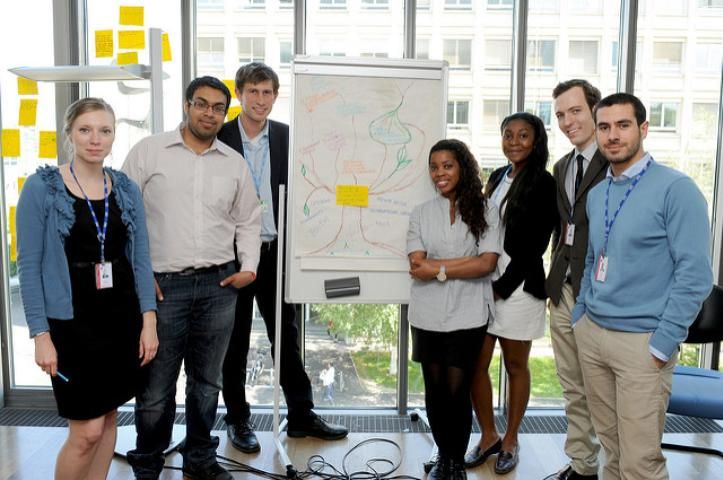Over 70 million adults born between 1981 and 1996 make up the generation of adults referred to as millennials (also known as Generation Y) (Fry, 2018). As of 2017, this generation of individuals is the fastest-growing group making up the present-day workforce, with 56 million millennials currently employed or looking for work (Fry, 2018). One in three individuals in the workplace is a millennial (Fry, 2018), surpassing the number of baby boomers (born 1946‒1964) and Generation X (born 1965‒1980). While it is starting to level off, this number will continue to climb as those born at the tail end of the millennial generation will be turning 22 this year and starting to enter the job market after completing college (Fry, 2018).
To remain competitive in this rapidly changing world, organizations must consider how growing up as a millennial will affect the workplace. One trend many employers are facing is the ever-increasing problem of disengaged employees (Gallup, 2016). To best understand why this is concerning, one must understand the benefits of a fully engaged employee. An employee that is engaged has an emotional commitment to the organization, its mission, and goals (Holmberg-Wright, 2017). Engagement is more than happiness; rather, it is how invested the employee feels and is motivated by their work. Employees that are engaged are more likely to go above and beyond to get the job done, stay with the organization longer, and feel a higher level of job satisfaction (Holmberg-Wright, 2017).

Credit: Millennials Jam Workshop: Youth and ICTs beyond 2015 ITU/Rowan Farrell
Because millennials make up such a large portion of the workforce, it is imperative that employers better understand them and understand how to engage them. According to a 2016 Gallup poll, only 29% of the millennial generation says they are engaged at work (Gallup, 2016). A staggering 55% of millennials say they are not engaged or indifferent to their work (Gallup, 2016). The notion that this generation consists of job-hoppers is not unfathomable with such a large portion of the workforce unmotivated and uninspired by their work, and most staying only two years in a position (Holmberg-Wright, 2017).
Being raised in the digital world, millennials are driven by the concept of having the world at their fingertips (Gallup, 2016). While they are waiting longer to get married and have children, work-life balance is more important to them than previous generations (Gallup, 2016). Health and well-being, a sense of purpose, financial stability, and social networks have also been identified as important contributors to job satisfaction for millennials (Gallup, 2016).
The Keys to Engaging Millennials
Employers can cultivate investment in millennial employees by incorporating elements that are important to them. There are six items consistently found in the literature that employers can focus on to better engage this subset of the population (Gallup, 2016; Holmberg-Wright, 2017).
- Create a clear purpose. Millennials care less about the paycheck and more about making a difference in the world, and work harder when they know and believe in what they are working towards. Companies that have clearly communicated the vision, mission, and goals of the organization provide millennials with direction and a sense of purpose.
- Provide life-long learning opportunities. To motivate millennial employees, employers should offer opportunities for continuing education, professional development, and personal growth. This group of individuals is motivated by learning, whether through face-to-face training opportunities or informal guidance from coworkers.
- Provide coaching and mentorship opportunities. The difference between a manager and a leader are more important than ever. The millennial workforce is looking for someone to help them build on their strengths, to value them as both people and employees, and to help coach them through new experiences.
- Communicate clearly and often. Likely attributed to growing up in the information age, millennials prefer to receive constant and ongoing informal feedback and coaching, rather than the typical once-per-year formal evaluation. Most millennials prefer communication to be quick, concise, and instantaneous. While email and text are the preferred mode of communication due to efficiency, there is a growing popularity in electronic face-to-face methods, including video chat.
- Encourage team-oriented projects. Rather than working alone, millennials prefer a more collaborative atmosphere. Teamwork allows for millennials to network and build a name for themselves while still working together toward a common goal. Group work also provides employees an opportunity to maximize their strengths.
- Provide a flexible work environment. While millennials need a purpose to work towards, they also need an employer that does not micromanage. Flexibility can come in many different shapes and sizes and can include telecommuting, doing away with the strict 9-to-5 work schedule, or allowing employees to work autonomously. The key to a flexible work environment is to give clear directions and expectations and then give employees the freedom to complete the project as they see fit.
Conclusion
Millennials currently make up the largest portion of the workforce, with 56 million individuals born between 1980 and 1996 working or looking for work (Fry, 2018). To remain a competitive organization and recruit the best and brightest of today's workforce, companies and leaders must consider what is important to millennials and how to best engage them. Work-life balance, health and well-being, social networks, and financial stability are key motivators for millennials. To best engage this subset of the population, employers should create a clear purpose, provide life-long learning opportunities, coach and mentor staff, communicate clearly and often, encourage teamwork, and provide a flexible work environment.
References
Fry, R. (2018). Millennials are the largest generation in the U.S. labor force. Pew Research Center. Retrieved from https://www.pewresearch.org/fact-tank/2018/04/11/millennials-largest-generation-us-labor-force/
Gallup. (2016). How Millennials Want to Work and Live. https://www.gallup.com/workplace/238073/millennials-work-live.aspx
Holmberg-Wright, K., Hribar, T., Tsegai, J. (2017). More Than Money: Business Strategies to Engage Millennials. Business Education Innovation Journal, 9(2), 14‒23. http://www.beijournal.com/images/2_V9N2_final_2-2.pdf